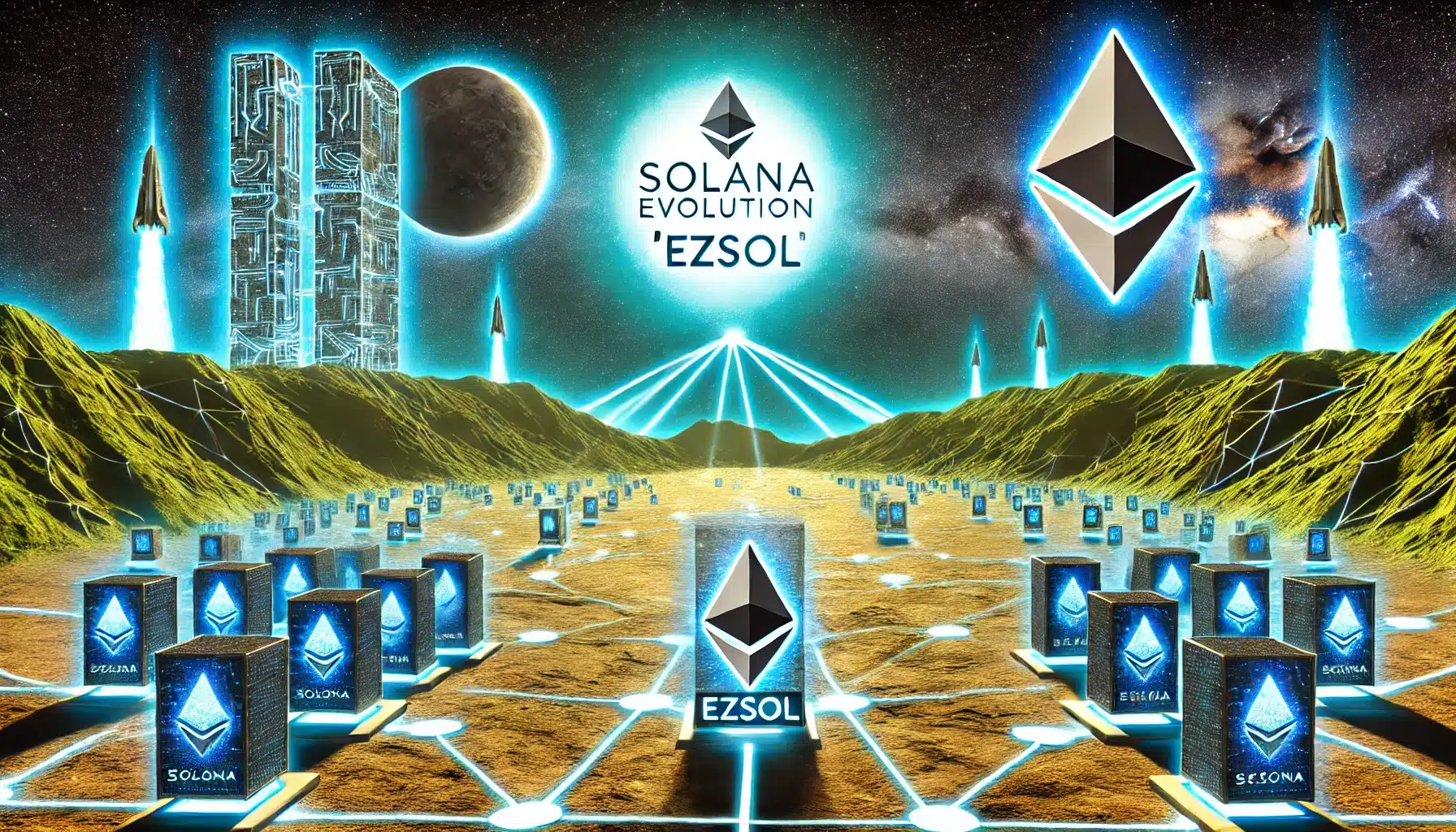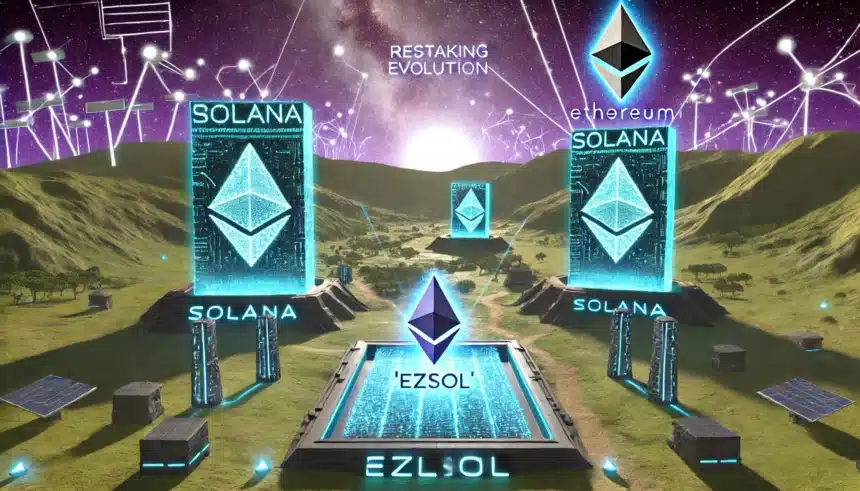As the concept of restaking takes shape on Solana, Renzo, a well-known name in the Ethereum ecosystem, is making a significant move into the Solana blockchain with the introduction of ezSOL. This development marks a critical moment in Solana’s evolving DeFi landscape, where restaking is expected to become a dominant segment, mirroring the growth of liquid staking in recent years.

Renzo’s Foray into Solana with ezSOL
Renzo, a liquid restaking protocol previously focused on Ethereum, has announced the launch of a new token, ezSOL, tailored for Solana’s budding restaking ecosystem. Renzo is recognised for its pioneering work with Ethereum-based projects like EigenLayer and Symbiotic, which have set the standard for liquid restaking in the industry.
With restaking taking shape on Solana, Renzo’s ezSOL token is designed to offer holders exposure to Jito Labs’ yield-generating infrastructure. This move not only highlights Renzo’s adaptability but also underscores the growing importance of Solana as a platform for innovative DeFi projects.
Renzo’s ezSOL will function closely with Jito’s staking token, jitoSOL, allowing users to deposit SOL and receive ezSOL in return. Behind the scenes, Renzo will stake the SOL with Jito to acquire jitoSOL, which will then be restaked within Solana’s ecosystem. This process is expected to generate additional rewards, benefiting both Solana users and the broader network.
The Technical Challenges of Restaking on Solana
While restaking takes shape on Solana, it presents unique technical challenges that differ significantly from those on Ethereum. Solana’s architecture is distinct, and its applications are built using different coding languages. To address these challenges, Renzo has employed Rust engineers to develop smart contracts specifically for ezSOL. These contracts are designed to relay the value generated by restaking directly into the price of ezSOL, ensuring that the token trades in tandem with, but slightly higher than, SOL.

This technical innovation is crucial as restaking takes shape on Solana, where the ecosystem is still in its formative stages. The success of ezSOL will depend on its ability to integrate seamlessly with Solana’s existing infrastructure, providing users with a reliable and profitable staking option.
Cultural and Strategic Considerations
As restaking takes shape on Solana, it’s not just the technical challenges that need to be addressed. The cultural differences between the Ethereum and Solana communities also play a significant role in the success of new projects. Solana’s user base, which includes crypto traders, stakers, and borrowers, is distinct from Ethereum’s, and bridging this gap is no small feat.
Renzo’s expansion into Solana is a bold move, especially considering the challenges faced by other Ethereum-based projects that have attempted to enter the Solana market. For instance, Lido, Ethereum’s liquid staking leader, struggled to gain a foothold on Solana and ultimately retreated earlier this year.
However, Renzo’s approach is different. By aligning closely with Jito Labs, one of Solana’s most successful startups, Renzo is positioning itself to succeed where others have faltered. This partnership allows Renzo to tap into Jito’s established infrastructure and user base, providing a solid foundation for ezSOL’s growth.

The Future of Restaking on Solana
As restaking takes shape on Solana, the introduction of ezSOL signals a new era for the blockchain. Renzo’s entry into the Solana ecosystem reflects the growing interest in restaking as a key component of DeFi, with the potential to revolutionise how users interact with blockchain networks.
For Solana, this development could lead to increased user adoption and greater liquidity within its ecosystem. As restaking continues to evolve, Solana’s position as a leading platform for DeFi innovation is likely to be strengthened, attracting more developers and investors to the network.
In conclusion, as restaking takes shape on Solana, Renzo’s launch of ezSOL represents a significant step forward for both the protocol and the broader Solana ecosystem. With the support of Jito Labs and a keen understanding of the technical and cultural challenges involved, Renzo is well-positioned to capitalise on the opportunities that restaking presents on Solana.





























